When you factor invoices or lend money against business assets, you’re not just trusting a client to pay-you’re betting on something tangible. That’s where UCC filings come in. Without them, your claim to collateral is weak, invisible, and easily wiped out in bankruptcy or by another lender. This isn’t legal jargon for lawyers-it’s the backbone of every secured transaction in the U.S., especially in invoice factoring, equipment financing, and small business lending.
What Exactly Is a UCC Filing?
A UCC filing is a public notice that someone else has a legal claim on your business assets. It’s not a lien you get from a court-it’s one you create yourself by signing a contract and filing paperwork. Think of it like registering a car title. If you don’t file, no one else knows you own the rights to that asset, and someone else could take it-even if you paid for it first. Under Article 9 of the Uniform Commercial Code, a security interest becomes enforceable only when it’s perfected. That means three things must happen:- You’ve given value (like cash or credit)
- The debtor signed a security agreement describing the collateral
- The debtor has rights in the property (even if they don’t fully own it)
Why Filing Matters More Than You Think
Let’s say you’re a factoring company that buys $200,000 in invoices from a trucking business. You give them cash upfront, and they agree to give you a security interest in their accounts receivable. Sounds solid-until the business files for Chapter 11. If you didn’t file a UCC-1, the bankruptcy trustee can wipe your claim. Why? Because under 11 U.S.C. § 544, unperfected security interests are voidable. The trustee becomes a hypothetical lien creditor and can seize those receivables to pay other creditors. You get nothing. Now, if you filed correctly? You’re in line. You get paid before unsecured creditors. That’s the difference between losing $200,000 and getting it back.The Three Ways to Perfect a Security Interest
There are three legal paths to perfection-and only one is used in 95% of cases:- Filing a UCC-1 - The standard. You submit a form to your state’s Secretary of State. This gives you priority over other creditors who file later.
- Possession - You physically hold the collateral (like warehouse receipts, negotiable instruments, or certificated securities). This is rare in invoice factoring but common in pawnshops or equipment lenders.
- Control - You have direct access to financial accounts (like bank accounts or electronic chattel paper). Used in digital asset lending and some factoring setups.
What Goes on a UCC-1 Form?
The UCC-1 form looks simple, but it’s full of traps. Three fields matter most:- Debtor’s name - Must match exactly what’s on their official state registration. If they’re “ABC Trucking LLC,” don’t write “ABC Trucking” or “ABC Trucking, Inc.” Miss this, and your filing is useless.
- Secured party’s name and address - This is who gets notified if someone searches your lien. Mess this up, and you won’t get paid when the collateral is sold.
- Collateral description - This is where most people fail. You can’t just say “all assets.” Courts have thrown out blanket liens that don’t reasonably identify the property.
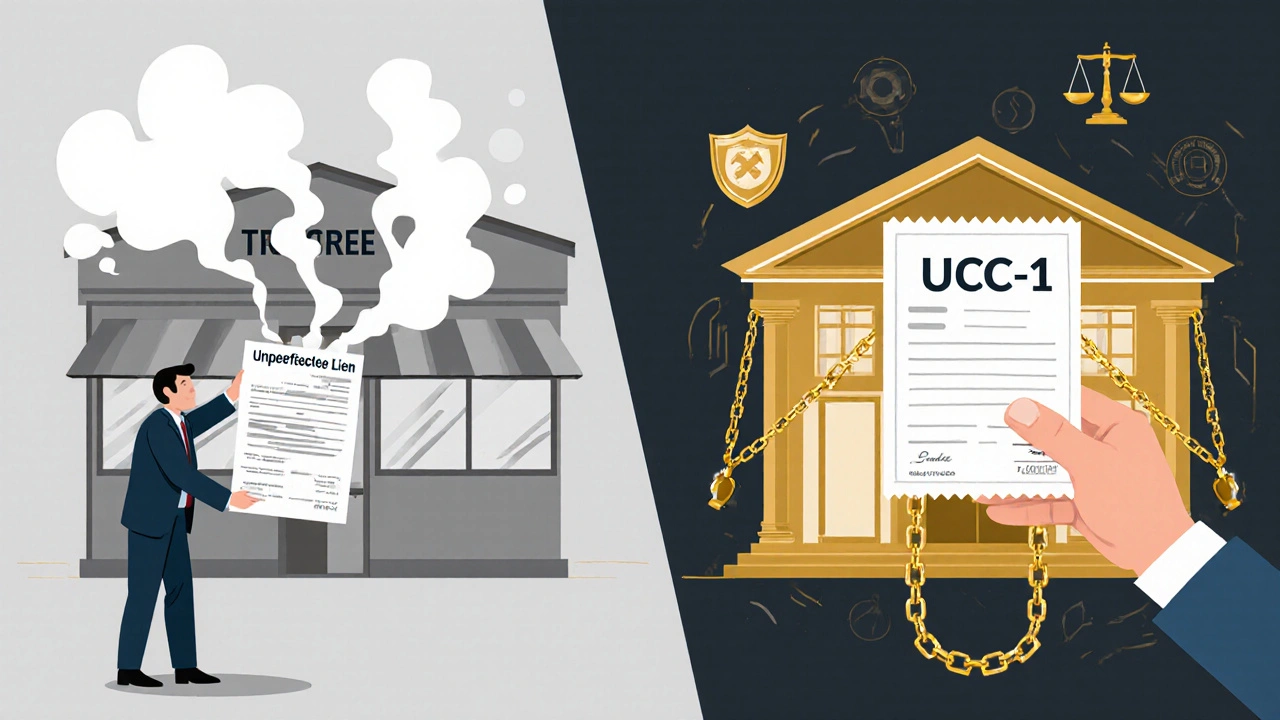
How Long Does a UCC Filing Last?
Five years. That’s it. After five years, your lien expires unless you file a continuation statement. You have six months before expiration to file it. Miss that window? Your interest becomes unperfected. Even if you filed perfectly five years ago, you’re out of luck now. And here’s the kicker: 78% of UCC filings in Illinois in 2019 were continuation statements-not new loans. That means most businesses have multiple active liens from old debts they forgot about. If you’re applying for a new loan, your lender will run a search. If they see an old, expired lien, they might assume you’re still encumbered-and deny your application.PMSI: The One Exception That Can Save You
There’s one powerful exception to the “first in time, first in right” rule: the Purchase Money Security Interest (PMSI). If you finance equipment for a business and they use that equipment to generate revenue (like a delivery van or a printing press), you can get priority over earlier filers-if you follow strict rules. To get PMSI priority, you must:- File your UCC-1 before the debtor takes possession of the collateral
- Send a notice to any prior secured parties (if they’ve filed on the same collateral)
What Happens When Two Lenders Fight Over the Same Asset?
Priority rules are messy. The default is “first to file.” But exceptions exist:- Perfection by possession beats a prior filing
- PMSI beats prior filings if properly perfected
- Government liens (like tax liens) often have super-priority
- Bona fide purchasers (buyers who don’t know about your lien) can take the asset free and clear
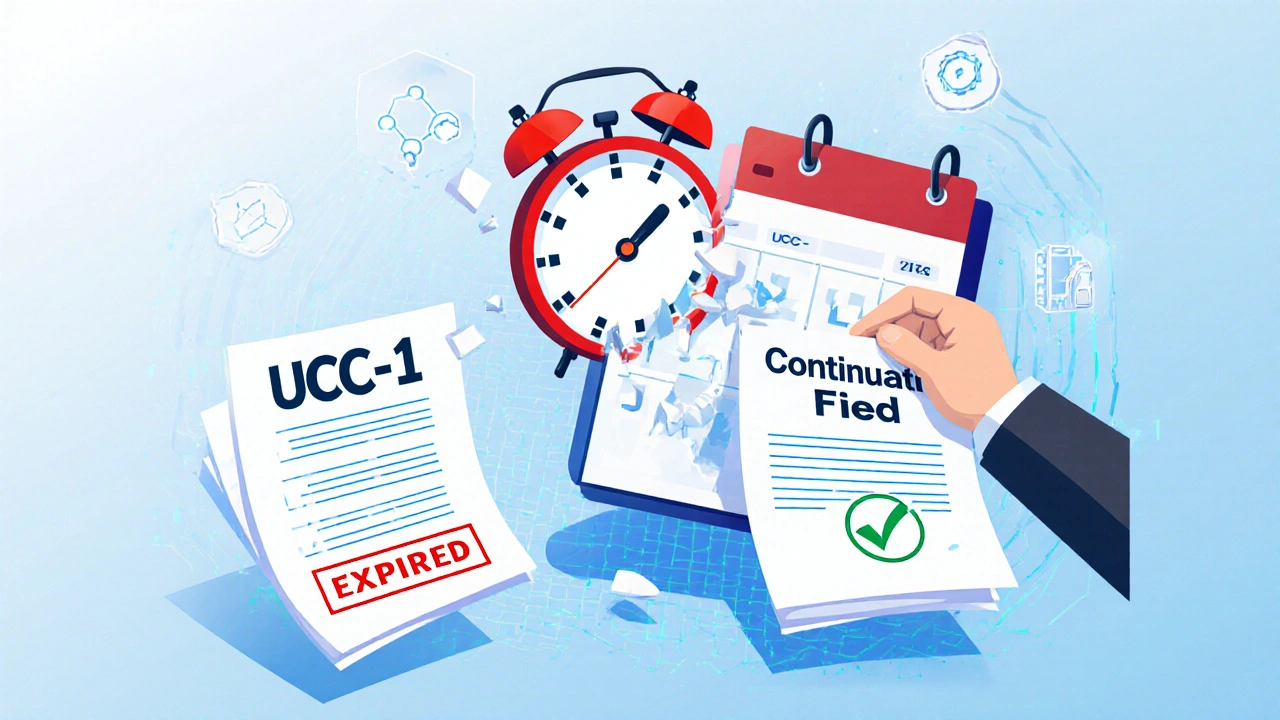
Real-World Mistakes That Cost Businesses Money
Small business owners don’t always understand UCC filings. A 2022 SBA survey found:- 67% didn’t know when they were required to file
- 32% thought they needed to file even for unsecured loans
What’s Changing in 2025?
The system is getting smarter-but not faster. As of 2025, 28 states already use standardized electronic filing systems. By 2026, all states must comply. Electronic filings now take under 24 hours in most places. Fees vary: $20 in New York, $50 in Kansas. The Federal Reserve is testing blockchain-based UCC filings in Delaware, Illinois, and Utah. The goal? Reduce name-matching errors that cause 19% of priority disputes. Meanwhile, the American Law Institute is working on new rules for digital assets-cryptocurrency, NFTs, and blockchain-based receivables. By 2024, UCC Article 9 will likely include language to secure these new types of collateral.How to Protect Yourself in Invoice Factoring
If you’re factoring invoices, here’s your checklist:- Use a written security agreement signed by the client
- Describe collateral clearly: “All present and future accounts receivable from customers”
- File the UCC-1 within 24 hours of funding
- Search existing liens on the debtor before signing
- Renew your filing every five years-set a calendar reminder
- Don’t rely on blanket liens like “all assets.” They’re often invalid
Final Thought: It’s Not About the Paper-It’s About the Priority
UCC filings aren’t bureaucracy. They’re insurance. In a world where businesses fail, assets get sold, and lenders compete, your lien is only as strong as your paperwork. A perfect security interest doesn’t guarantee payment-but without it, you’re gambling with your capital. In invoice factoring, your profit isn’t just in the discount rate. It’s in knowing you’ll get paid if things go south. That’s not luck. That’s a UCC-1.Do I need to file a UCC-1 for every invoice I factor?
No. You file one UCC-1 to secure your interest in all current and future accounts receivable from that debtor. You don’t file per invoice. The collateral description should cover all receivables arising from the debtor’s business operations.
Can I file a UCC-1 without a signed security agreement?
No. A security agreement is required for the interest to attach. The UCC-1 filing alone doesn’t create a legal claim. You need both: a signed contract describing the collateral and a properly filed UCC-1 to perfect it.
How do I check if a business already has UCC liens?
Search the Secretary of State’s UCC database in the state where the business is registered. Most states offer free online searches. Use the exact legal name of the business. Don’t rely on trade names or abbreviations.
What happens if I file a UCC-1 but the debtor’s name is wrong?
Your filing is ineffective. Courts have ruled that if the debtor’s name on the UCC-1 doesn’t match the official state record, the filing doesn’t provide notice to other creditors. Your security interest becomes unperfected-even if everything else is correct.
Can a UCC lien be removed early?
Yes. Once the debt is paid in full, the secured party must file a UCC-3 Termination Statement within 30 days. If they don’t, you can send a written demand. If they still refuse, you can file a UCC-3 with a $20-$50 fee to terminate the lien yourself in most states.
Is a UCC filing the same as a tax lien?
No. A UCC filing is consensual and created by contract. A tax lien is imposed by the government for unpaid taxes. Tax liens often have priority over UCC liens, even if filed later. Always check both UCC and tax lien searches before lending.
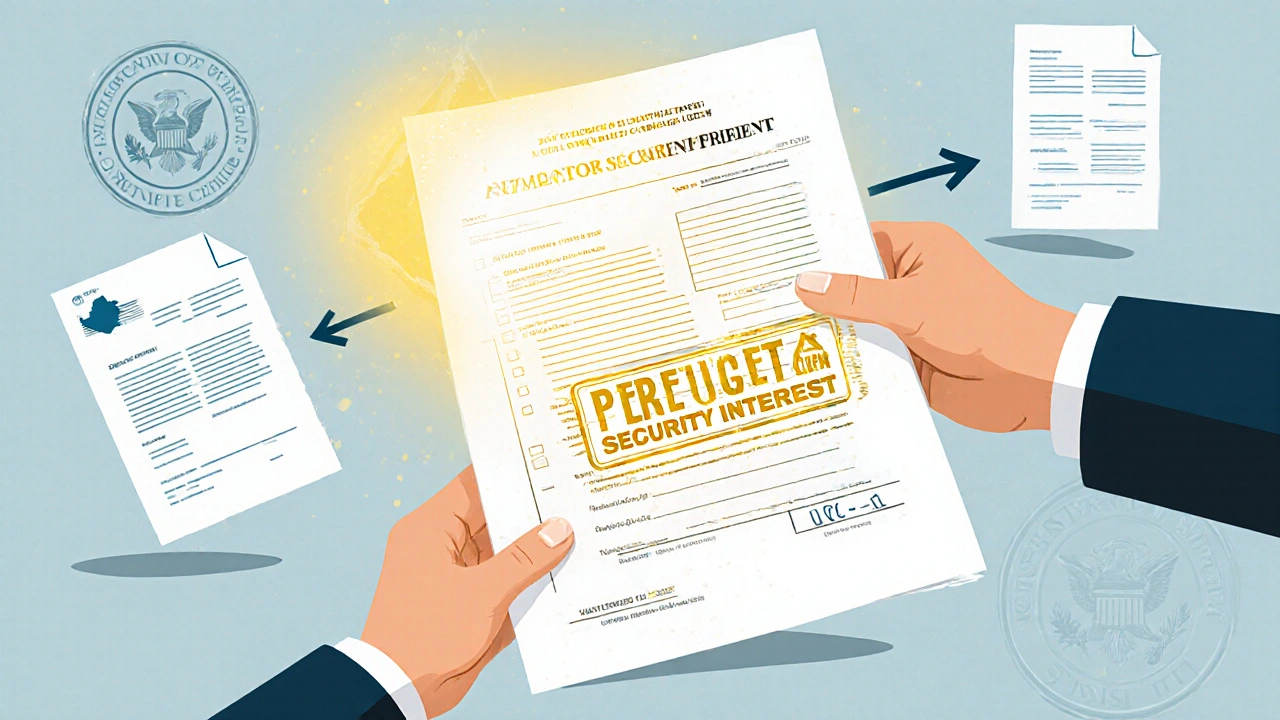
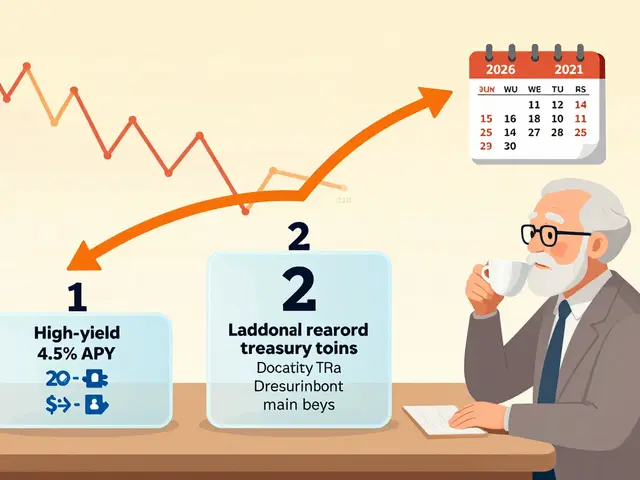


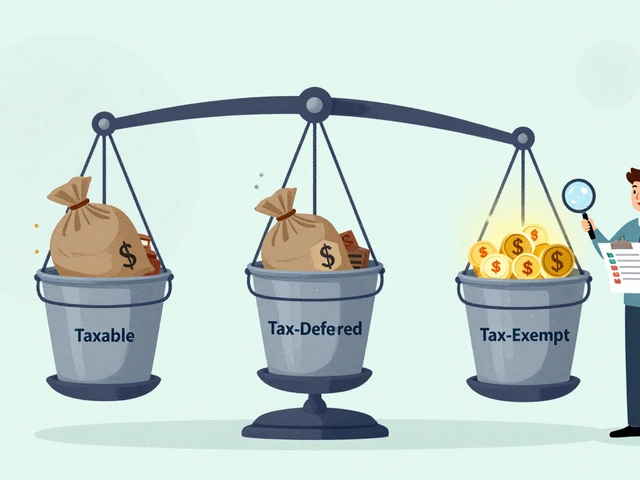

Julia Czinna
November 16, 2025 AT 03:40Just wanted to say this is one of the clearest explanations of UCC filings I’ve ever read. I work in small business lending and see so many people skip the filing because it feels like red tape-until they lose everything. Seriously, this should be required reading for anyone factoring invoices or financing equipment.
Laura W
November 17, 2025 AT 12:10Bro, UCC-1 isn’t just paperwork-it’s your financial armor. Skip it and you’re walking into a gunfight with a napkin. I’ve seen startups get wiped out because their ‘lender’ didn’t file. One guy thought ‘I have a signed contract’ was enough. Nope. The trustee laughs, takes the receivables, and you’re left crying over coffee. File. Every. Time.
Graeme C
November 17, 2025 AT 14:15This is exactly why I refuse to work with any factoring firm that doesn’t have a compliance officer on retainer. I’ve been burned twice-once because the debtor’s LLC suffix was wrong (‘Inc.’ vs ‘LLC’), and once because the collateral description said ‘all assets’ like some lazy parrot. Courts don’t care about your good intentions. They care about precision. One typo. One missed deadline. One unfiled continuation. And poof-your $300k is now a footnote in someone else’s bankruptcy filing.
And don’t even get me started on PMSI. I had a client lose priority on a $120k CNC machine because the lender filed the UCC-1 *after* delivery. The debtor had an existing lienholder who hadn’t even noticed the machine existed-until the trustee sold it. Moral? File early. Notify everyone. Don’t wing it.
Astha Mishra
November 18, 2025 AT 06:14It is fascinating how the legal architecture of commerce, so often taken for granted, operates as an invisible scaffold holding up economic trust. The UCC filing system, though bureaucratic in appearance, is in fact a profound social contract-an agreement among strangers that if one invests capital, they may, through the ritual of documentation, secure a claim upon the fruits of another’s labor. In this light, the precision of debtor names, the clarity of collateral descriptions, and the discipline of renewal are not mere formalities, but acts of ethical reciprocity. To neglect them is not merely a legal error, but a failure of relational integrity within the marketplace. One wonders how many small businesses collapse not due to poor sales, but because they misunderstood this quiet covenant of paperwork.
Moreover, the emergence of blockchain-based filings in Delaware and Utah suggests a future where the system may become more transparent, less prone to human error, and perhaps even more equitable. Yet, even as technology advances, the human element remains: the lender who forgets to renew, the borrower who assumes the lien is gone after paying off the debt. The law may evolve, but vigilance must remain constant.
Kenny McMiller
November 18, 2025 AT 06:47UCC filings are the ultimate ‘set it and forget it’-until you forget it. Five years? Yeah, I’ve seen too many lenders get smoked because they didn’t set a calendar alert. One guy didn’t renew and lost a $75k lien on a fleet of vans. Meanwhile, the debtor went and got a new loan from a bank that ran a search, saw an expired filing, assumed it was still active, and denied the loan. So now the business is stuck paying 18% because some lender got lazy. UCC isn’t sexy. But it’s the difference between sleeping at night or crying into your ramen at 3 a.m.